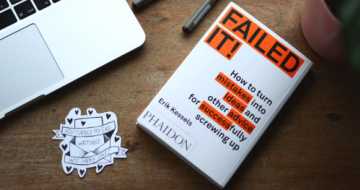Dr. Markus Nini
Dr. Annette Towler
Dr. Annette Towler
Dr. Sumbul Tahir
Dr. Annette Towler
Dr. Markus Nini
Dr. Markus Nini
Dr. Devon Price
Dr. Devon Price
Dr. Devon Price
Dr. Devon Price
Pages
- 1
- 2
Filter by category:
Filter by tags:
- (-) Remove Change Management filter Change Management
- Evidence-based change management (10) Apply Evidence-based change management filter
- Change side effects (5) Apply Change side effects filter
- Discourse (4) Apply Discourse filter
- Language of change (4) Apply Language of change filter
- Collaboration (2) Apply Collaboration filter
- Leadership (2) Apply Leadership filter
- Strategy (2) Apply Strategy filter
- Team Dynamics (2) Apply Team Dynamics filter
- Agility (1) Apply Agility filter
- Attitude change (1) Apply Attitude change filter
- Behavior change (1) Apply Behavior change filter
- Collaborative learning (1) Apply Collaborative learning filter
- Cross Functional Collaboration (1) Apply Cross Functional Collaboration filter
- Decision making (1) Apply Decision making filter
- Employee habits (1) Apply Employee habits filter
- Future orientation (1) Apply Future orientation filter
- Goal Agreement (1) Apply Goal Agreement filter
- Goal setting theory (1) Apply Goal setting theory filter
- Innovation (1) Apply Innovation filter
- Job performance (1) Apply Job performance filter
- Large Scale Organizational Change (1) Apply Large Scale Organizational Change filter
- Moderation & Structuring (1) Apply Moderation & Structuring filter
- Motivational interviewing (1) Apply Motivational interviewing filter
- Organizational culture (1) Apply Organizational culture filter
- Organizational learning (1) Apply Organizational learning filter
- Organizational politics (1) Apply Organizational politics filter
- Power (1) Apply Power filter
- Psychological safety (1) Apply Psychological safety filter
- Structuration Theory (1) Apply Structuration Theory filter
- Team Building (1) Apply Team Building filter
- Transformational Leadership (1) Apply Transformational Leadership filter
- Unique thinking (1) Apply Unique thinking filter


















